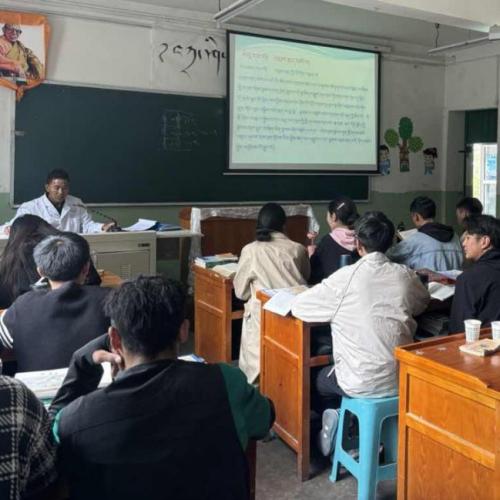



The University of Tibetan Medicine in Lhasa, capital of the Xizang autonomous region, has accumulated experience training undergraduate, master's, and doctoral talents in Tibetan medicine. It bears the historical responsibility of cultivating innovative talents in Tibetan medicine, inheriting and innovating the traditional culture, and addressing major scientific and technological issues in Tibetan medicine.
Over the past 30 years, 58 percent out of 276 university faculty members has held master's or doctoral degrees, university officials said.

Dorje Rinchen, a professor and PhD supervisor at the university, said the university has over 2,300 students, including more than 400 postgraduates. It offers six undergraduate majors in Tibetan medicine, Tibetan pharmacology, nursing, marketing, traditional Chinese medicine and Tibetan medicine integration, Tibetan medicine pharmaceuticals, and one vocational specialty in TCM and Tibetan medicine.
"It has trained and produced over 7,600 Tibetan medicine professionals, and they serve as the main force in grassroots Tibetan hospitals, private Tibetan medical hospitals and enterprises everywhere in China," he said.

Chagdor Drolma, a Tibetan medicine major, said the school offers a variety of courses on knowledge regarding the Four Treatises of Tibetan Medicine, as well as other Tibetan medical classic works.
"The school provides a very comfortable learning environment for us and plenty of opportunities to practice," she said.
"More than as a main part of traditional Tibetan culture, Sowa Rigpa, or Tibetan Medicinal Science, is a unique medical science which differs from other medical sciences in the world. It has some special diagnostic and treatment methods with specific efficacy for some complicated and perplexing conditions."


If you have any problems with this article, please contact us at app@chinadaily.com.cn and we'll immediately get back to you.